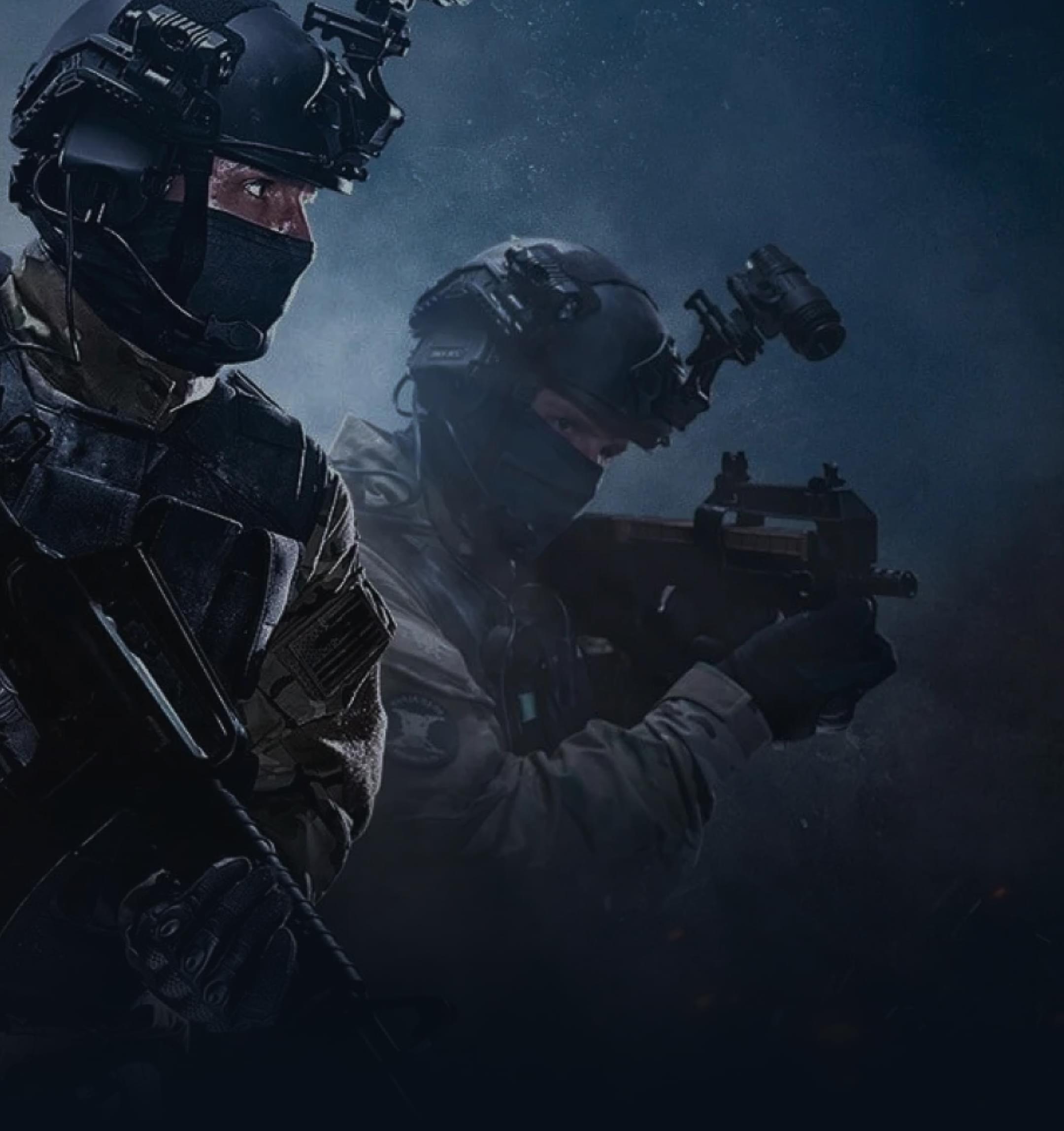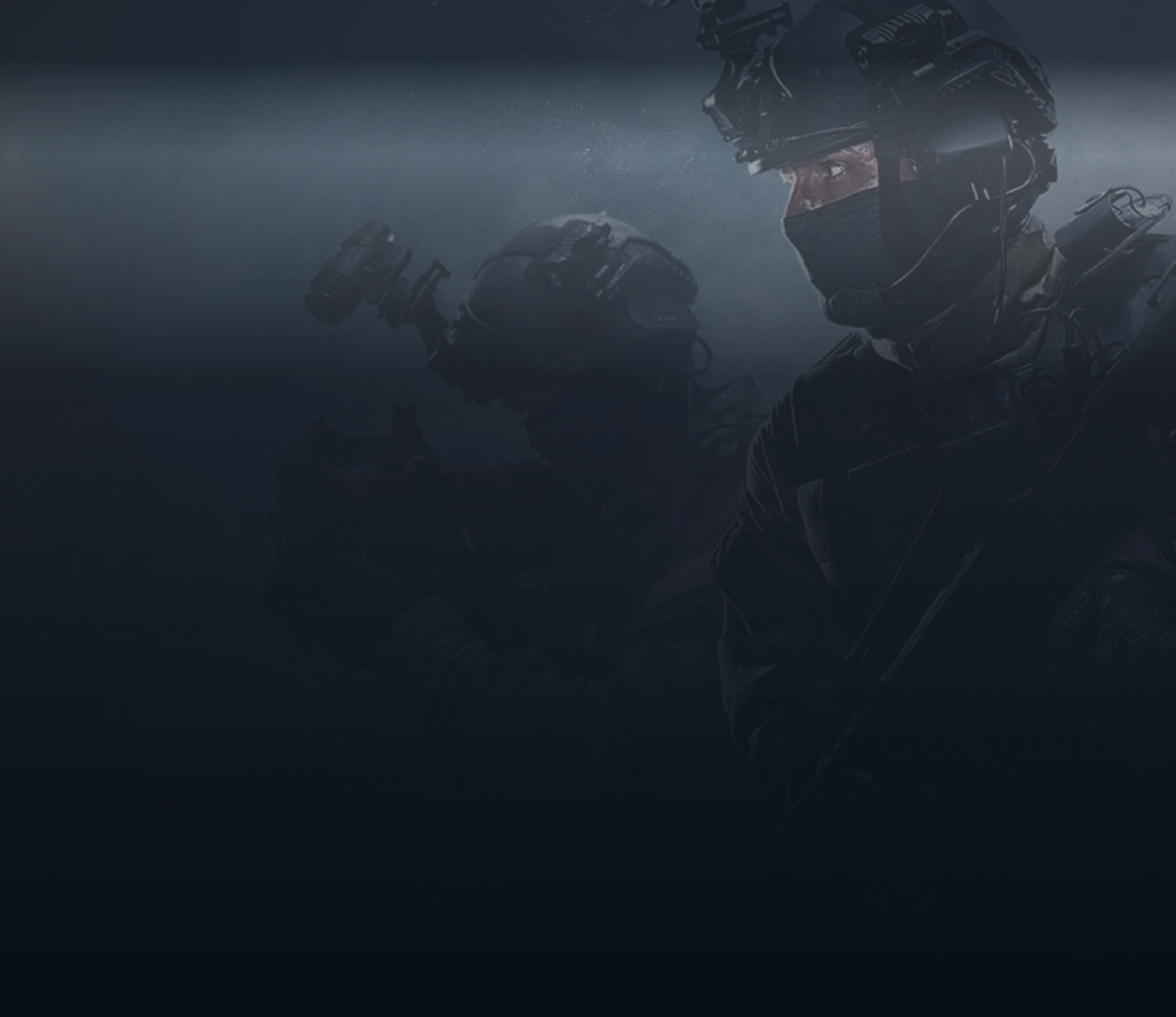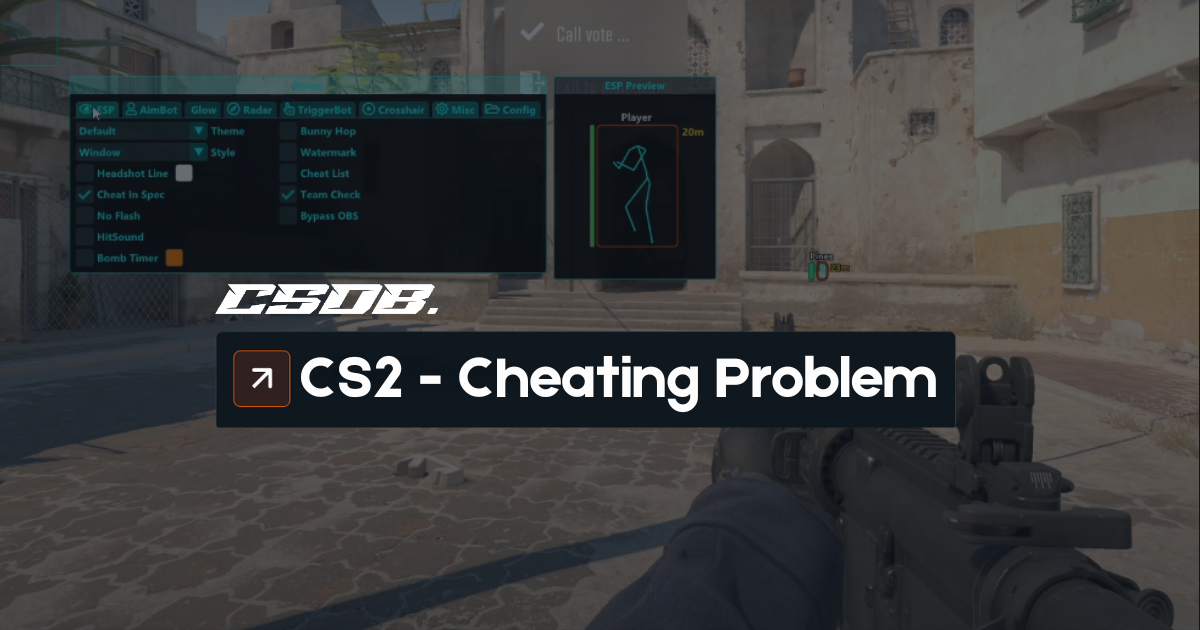When Counter-Strike 2 was launched, it was met with mixed, yet hopeful, reactions from the fans of Valve’s premier FPS title as a new era ushered in. Lots of changes were immediately felt, however one crucial aspect that remained a constant was the amount of players utilizing hacks in the server. Cheating undermines the integrity of the game, disrupts the player experience, and poses a challenge to developers committed to maintaining a fair playing field. It was already a problem way back in Global Offensive, and unfortunately in CS2, cheaters are as prevalent as ever and have ruined the experiences of many members of the community – including the world’s greatest professional players.
The Impact of Cheating on the Community
The cheating problem in CS2 is worse than it was in Global Offensive, by a large margin. In general, cheating in online games affects both the individual player and the broader community. For individual players, encountering cheaters can lead to frustration, demotivation, and a diminished sense of accomplishment. When players invest time and effort to improve their skills, only to be undermined by someone using unfair advantages, it can significantly diminish their enjoyment and sense of fairness. This experience often leads to a loss of trust in the game’s integrity.
Its impact on the CS2 community has been felt exponentially. The greatest CS:GO player of all time, Oleksandr “s1mple” Kostyliev, has never been afraid to speak his thoughts and publicly call out Valve when it comes to cheating. In a social media post last April, he stated that the Premier game mode is unplayable due to the amount of cheaters on it – something the community all agree with. Other professional players and content creators have also called out the situation, with some even announcing that they will be taking breaks from Counter-Strike in the meantime until the problem is solved.
The prevalence of cheating in CS2 is alarmingly high, with players frequently encountering cheaters, especially in competitive modes. Discussions on forums and social media are replete with complaints about blatant aimbots, wallhacks, and other unfair advantages, highlighting a pervasive issue that frustrates the player base. This widespread cheating severely undermines the competitive integrity of CS2. Honest players find their efforts negated, which discourages participation and diminishes overall enjoyment, as the core foundation of fair competition is compromised. The cheating landscape is also shifting, with the nature of cheats evolving beyond basic wall hacks and aimbots. More sophisticated cheats, such as those employing machine learning to adapt to player behavior, are emerging, making detection increasingly difficult. Consequently, the impact on the player base is profound. The persistent frustration with cheaters can lead to player churn, as new players encountering constant cheating may be discouraged from continuing. This not only affects the current player experience but also threatens the game’s long-term health, as a steady influx of new players is crucial for sustaining the community.
Types of Hacks
Aimbots: These programs assist players by automatically aiming at opponents, often resulting in unnaturally precise and quick kills. Aimbots can be configured to appear more human-like, making them harder to detect.
Wallhacks: Wallhacks are another kind of cheat software for online games. Imagine having X-ray vision that lets you see enemies through walls. That’s basically what a wallhack does. Normally, you rely on sight and sound cues to locate enemies hidden behind cover. A wallhack overlays information on your screen, revealing the location and sometimes even health of enemies, regardless of obstacles.
Triggerbots: Normally, you see an enemy, aim, and then fire your weapon. A triggerbot automates that last part. When your crosshairs are lined up on an enemy player, the triggerbot automatically clicks your mouse button, firing your weapon. It doesn’t aim for you, but it gives you near-instantaneous firing, making it much easier to land shots.
ESP (Extra Sensory Perception): Similar to wallhacks, ESP provides additional information about enemies, such as their health, distance, and equipment. This information can be displayed on the screen in real-time, giving the cheater an unfair edge.
Bunny Hopping Scripts: These scripts allow players to execute perfect bunny hops, a movement technique that increases speed and evasion, more effectively than what is typically possible through manual input.
Spinbots: Spinbots cause the cheater’s character to spin rapidly, making it difficult for opponents to target them and often leading to absurd and frustrating gameplay experiences. Spinbots aren’t known for subtlety. They’re often used to troll or disrupt gameplay, but some cheaters use them strategically. Spinbotters usually aid this type of hack with aimbots, making them both impossible to hit and impossible to even get a shot out before being shot yourself.
These hacks are not exclusive, and some extreme cheaters often use them alongside each other.
Causes of the Cheating Problem
Accessibility of Cheats: Cheat software is readily available online, often at a low cost. The ease of acquiring and using these programs empowers less skilled players to gain an unfair advantage.
Diminishing Player Base: The smaller player base in CS2 compared to its successor, CS:GO, incentivizes cheaters. They can create multiple accounts and cheat with less risk of encountering players who might report them.
Inadequate Anti-Cheat Measures: CS2’s anti-cheat system, especially considering its age, might not be as robust as contemporary solutions. It might struggle to detect and ban new or sophisticated cheats quickly enough.
Frustration with Skill Gap: Some players might resort to cheats due to frustration with the challenge of improving their skills. This can be exacerbated by encountering skilled cheaters, creating a vicious cycle.
Possible Solutions for the Cheating Problem
Improved Anti-Cheat: Valve, the developer, should consider investing in a more robust anti-cheat system for CS2. This could involve machine learning algorithms and regular updates to stay ahead of evolving cheat developers. Unfortunately, the community has called out the VAC (or Valve Anti-Cheat) for being one of the worst in any high-tier online multiplayer game, so changes are definitely needed to address the problem at hand.
Community Policing: Encouraging players to report suspicious activity remains crucial. Streamlining the reporting process and providing clear feedback to players about reported incidents can foster a more responsible community.
Accountability Measures: Stronger penalties for cheaters, including harsher bans and potential hardware bans, can deter repeat offenders. Even going as far as IP (Internet Protocol) Address bans may be necessary.


